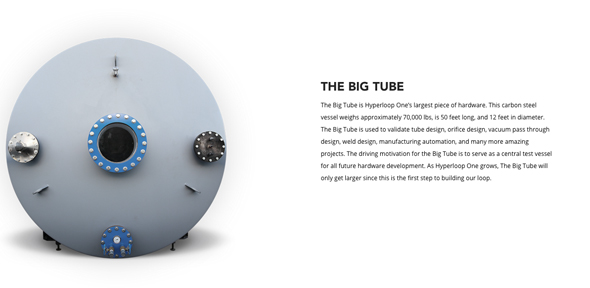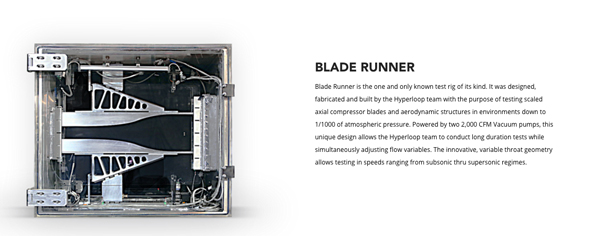Hyperloop in the UAE: Dubai to Fujairah in 10 minutes?
Dubai continues to look toward the future, and this year it will host a design competition for the world’s most out-there transport solution.
Remember how we talked about the Hyperloop earlier this year? The new proposed transport system could take passengers from Dubai to Abu Dhabi in under 15 minutes, and it looks like it is happening. Except one thing’s changed: the government’s focus is now on taking us from Dubai to Fujairah in – wait for it – 10 minutes.
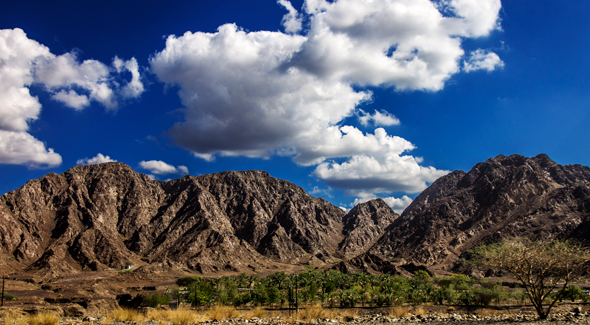 Fujairah – if the work commute was 10 minutes, we could definitely live with this view. Photo: Getty Images.
Fujairah – if the work commute was 10 minutes, we could definitely live with this view. Photo: Getty Images.
The Dubai Future Foundation has just announced an international competition that will take place in Dubai in September and will see 100 scientists, engineers and tech experts spend 48 hours collaborating to design a Hyperloop station, ‘track’ and system that will take passengers from Dubai to Fujairah in 10 minutes (the trip currently takes about 90 minutes by car).
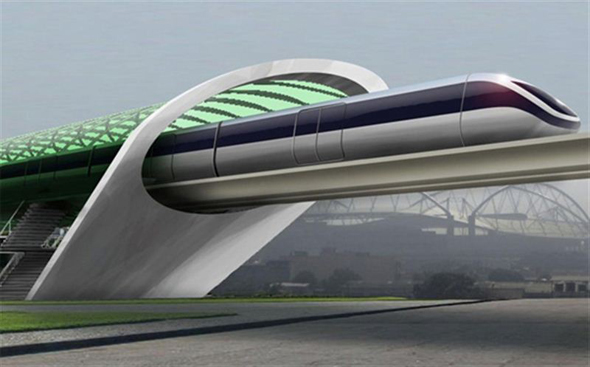
Hyperloop as a technology is capable of reducing the time required for travel between New York and Beijing to just two hours. Famous inventor Elon Musk first proposed the idea back in 2013, and made his research public so that others could pursue developing the concept. This means the Hyperloop technology is open source and is currently being pursued by a number of companies and individuals.
ALSO READ
*This will change the future of Dubai (and possibly the world)*
*Driverless cars & more on what Dubai will look like in 2030*
The technology for Hyperloop already exists, but this collaborative design competition will see great minds get together to figure out the infrastructure for the super-speedy pods. The fact that the UAE is hosting it shows the country’s strong commitment to possibly developing and implementing the futuristic transportation.
Here’s a video that explains how the Hyperloop works:
THE COMPETITION
Before the competition, contestants will receive a high level design brief. And in the final stage of the competition, six teams will explain their project in front of an international panel of judges.
And while it hasn’t yet been stated, we imagine the winning team’s plans will then be put into action. The company behind Hyperloop say they want there to be a functioning ‘loop’ by 2020.
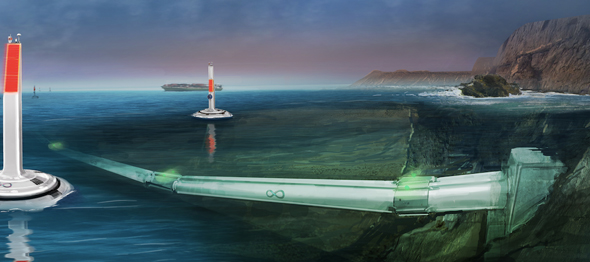 The Hyperloop could travel underwater.
The Hyperloop could travel underwater.
A key part of the competition will also be introducing engineers and inventors to the investors that can help make the technology happen.
Want to know more about the competition? Or even fancy entering? Head here.
DUBAI’S FUTURE STRATEGY
HE Mattar Al Tayer, Director General and Chairman of the Board of Directors of Roads and Transport Authority (RTA), pointed out that the competition and the Hyperloop technology aligns with the RTA’s strategy to “convert 25% of the total commuting trips [in the UAE] to autonomous mode (driverless) [by 2030]… turning Dubai into a global laboratory for next generation technologies in the field of transportation.”
“Smart systems will revolutionise Dubai’s transport sector,” he added.
The Hyperloop competition isn’t the only exciting announcement to come from the Dubai Future Foundation this summer. Last month they announced the Dubai Future Accelerators programme.
This programme has the UAE government saying, tell us your ideas for tackling “the most complex opportunities and challenges of the 21st century” and we’ll help them become a reality.
This basically means Dubai is going to pay people to help develop their concepts for the future, and they want nothing in return: the Dubai government is committing Dhs1 billion to the project.
“Our goal is to transform the city of Dubai into a global test bed for leading ideas and technologies,” said Sheikh Hamdan. “This is about changing the world today.”
Interested in that competition? Well submissions close tomorrow – head here to sign up for that.
MORE ON HYPERLOOP
While Hyperloop is innovative, it will also be cheaper than other transport options, with developers saying it will cost just 10 per cent of the cost of building conventional high speed trains.
The Hyperloop involves a low-pressure pipe linking two stations, and would allow passengers to travel at speeds of up to 1200 km per hour.
When presented in Dubai in February the plans for Hyperloop showed a bunch of small pods (rather than one large train) that would be on demand, leaving when you want to leave, and going directly to your chosen station.
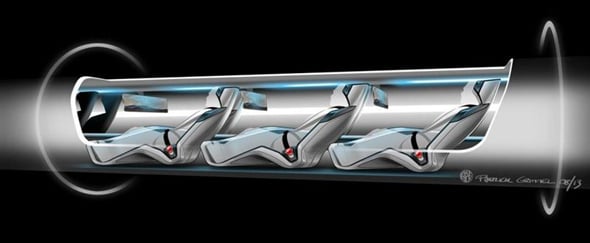
The infrastructure will be made up of large tubes that run between destinations, and the pods will levitate rather than be on tracks. The environment within the main tube will be controlled so that there will only be a very small amount of air in it, creating a suction of sorts, so that the pods move from one end to the other (very, very quickly – kind of like a parcel in a postal shoot). There are plans to run them either underwater or above ground.
Oh, and update on the company Hyperloop One. The co-founder who presented Hyperloop at the World Government Summit in Dubai in February, Brogan Bambrogan, has resigned and is now suing the company he helped to form.
Here are some of the key parts of the Hyperloop:
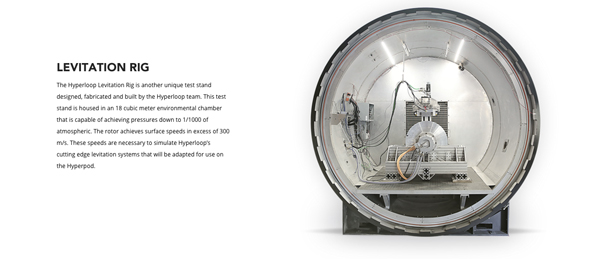
WHAT IS THE DUBAI FUTURE FOUNDATION?
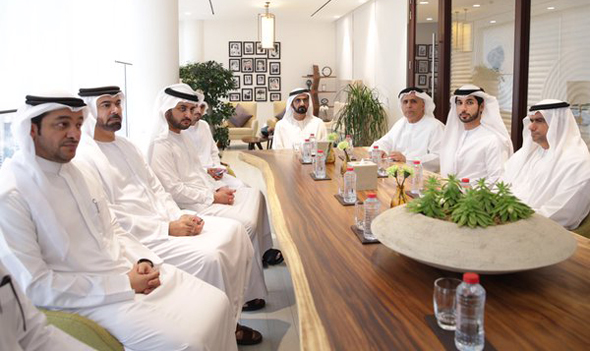 The Foundation’s board. Photo: Twitter/SheikhMohammed.
The Foundation’s board. Photo: Twitter/SheikhMohammed.
The Dubai Future Foundation is headed up by His Highness Sheikh Hamdan bin Mohammed bin Rashid Al Maktoum, Crown Prince of Dubai.
Its aim is to strategise about the future and put in action plans that will make Dubai a smart and sustainable city by 2030.
“The future is not built on possibilities and numbers but on clarity of vision, planning, action and implementation,” said Sheikh Mohammed of the 2030 plan.
“Shaping the future is not a new concept for Dubai,” he added. “The city has achieved significant experience in aviation, trade, financial services and technology.”
Speaking of the Arab world’s history of innovation, Sheikh Mohammed said: “Arabs and Muslims established the House of Wisdom in the 9th century as a global model for sciences and a platform for innovators from all over the world. Today we need this concept again in the 21st century to keep up with the changes and shape the future to serve humanity. After more than 1000 years we are recreating this wisdom through the Dubai Future Foundation.”
SO WHAT WILL IT DO?
“Dubai Future Agenda will focus on supporting and developing individuals, organisations and sectors, and include more than 20 initiatives to enhance the leadership of Dubai and the UAE,” Sheikh Mohammed explained.
There are three main pillars of the foundation:
– Individuals: This will be all about boosting the capabilities of individuals to shape the future in a positive way through financial support, public services etc. Training programmes and the like will be set up for those working in both the government and the private sector.
Two of the areas being developed for individuals are the ‘Mostaqbal Portal’, a scientific platform to publish reports and visual material about the latest developments in science and the ‘Schools of the Future’ report, which highlights the future of the educational system in the short and medium term.
– Organisations: This part of the plan will be all about engaging companies from both the private and public sector to conduct research and help boost the latest technologies. They will also establish the Future Laboratories, which will work with international companies and research institutions to develop innovative solutions for the future.
*READ NOW: Sheikh Mohammed’s inspiring letter on the future of the UAE*
– Sectors: This part of the programme will organise interactive exhibitions to educate people on future plans, it will also set up ‘Future Partners’, a network of researchers and innovators worldwide all working toward the shared goal of a smart and sustainable world. There will be incubators to support good ideas. There will also be an area called ‘Future Cities’ that works with other governments to help boost the UAE’s innovations around the world.
Here are some of the other specific projects the Dubai Future Foundation is working on…
– The Museum of the Future on Sheikh Zayed Road – read more about that here. This won’t just be an exhibition space, it will also include laboratories of innovation in the health, education, energy and transportation sectors.
– UAE Drones for Good – an award with a prize pool of Dhs4.6 million. Read all about the 2016 winners here.
– The world’s first 3D printed office (which is now near Emirates Towers).
– The World Federation of Future Sports (yes, robots on the field). More on that – and the games event planned for 2017 – here.
– The Global Blockchain Council – made up of 42 government entities and private companies – working to develop Blockchain technologies. What is that you ask?
Here’s a definition of the Bitcoin-related technology from CIO.com:
“A web-based distributed ledger system in which applications can be built upon to increase data integrity and control, provide time-stamped verification and attribution, and increase efficiencies through automation. A blockchain is a public ledger of all bitcoin (cryptocurrency) transactions that have ever been executed.”

